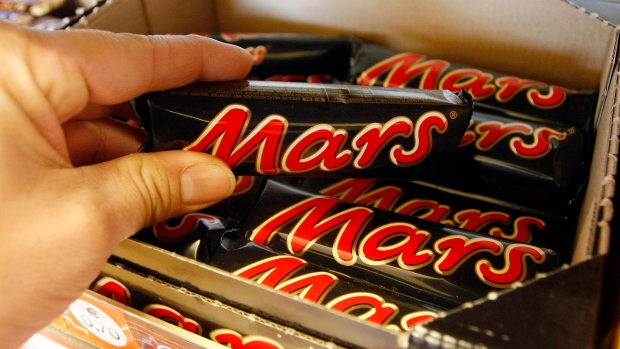Sep 6, 2017
Mars looking to move from candy-maker to climate change warrior
, Reuters

Candy manufacturer Mars Inc is aiming to cut greenhouse gas emissions and address other sustainability issues across its supply chain in a bid to help meet goals from the Paris climate agreement.
Mars is one of a number of U.S. firms, including Walmart Stores Inc and Apple Inc, that have committed to curbing climate change even as sentiment on the issue shifts in Washington. U.S. corporations including Home Depot Inc and General Mills are now major users of renewable energy like solar and wind.
The McLean, Virginia-based firm plans to spend US$1 billion as it expands its sustainability goals beyond previously announced targets to cut its own greenhouse gas emissions by 40 per cent by 2020 from its level in 2007.
"We expect to have a competitive advantage from a more resource efficient supply chain," Mars Chief Executive Officer Grant F. Reid said in a statement.
The company now said it will cut greenhouse gas emissions across its supply chain by 67 per cent by 2050.
Some companies have reaffirmed their commitment to battle climate change in recent months, after President Donald Trump said in June the United States would withdraw from the Paris climate agreement. The move drew praise from fossil fuel groups but criticism from others.
Mars has been sequencing genomes for crops like cocoa to make the plants more productive and has begun to have conversations with suppliers including mint oil manufacturers on potentially transitioning to renewable energy, said Andy Pharoah, Mars Vice President of Corporate Affairs. The company already uses renewable energy to power its operations in U.S. and U.K. markets.
Mars is also targeting reducing poverty in the production of some of its core crops, namely cocoa, rice and mint, and addressing human rights violations in cocoa, palm oil, and fish.
Exploitative labor and deforestation have been persistent issues for crops like cocoa and palm oil, two major ingredients for Mars' candy bars. In addition to candies like M&M's and Snickers, the company makes pet food and Uncle Ben's rice.
"Forced labor has no place in our supply chain, so we are very focused on making progress against that," said Pharoah. "There’s a whole range of activities on that. That starts with being open and transparent and calling it out."



